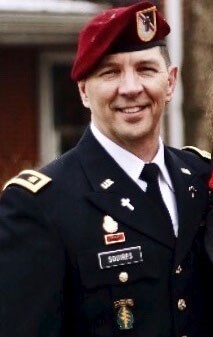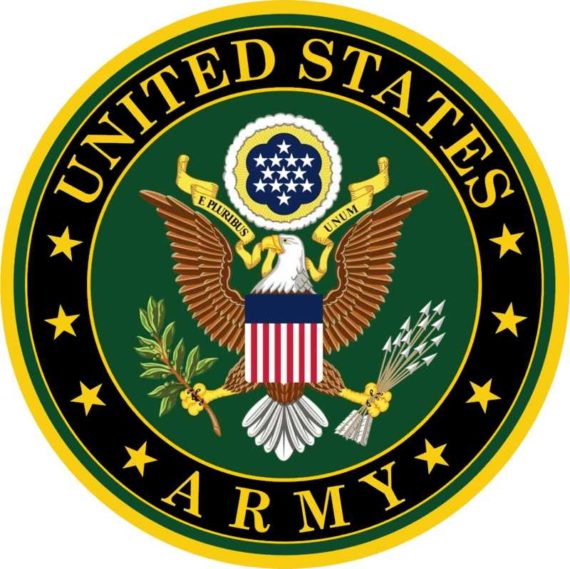
Army Chaplain, Scott Squires, was ordered to lead a marriage retreat for soldiers and their significant others in February. The North American Mission Board (NAMB) of the Southern Baptist Convention (SBC) specifically prohibits its chaplains from endorsing same sex relationships in any way, including by leading relationship counseling or retreats. In order to be a chaplain for the army, the army requires that Squires have ecclesiastical endorsement from the Southern Baptist Church. In
order to stay in accordance with his religion, Squires changed the date of the retreat and found another chaplain to lead it. A same sex couple filed an equal opportunity complaint, and after army investigation, Squires was found guilty of discrimination. This discrimination was determined on the basis that Army EO policy reads, “No service will be denied to army member of the armed service regardless of race, color, national origin, gender, religious affiliation, or sexual orientation.” Squires is now asking the army to reverse their findings because he believes it is within his free exercise rights to have found another chaplain for the retreat.
For the purpose of this blog post, I will be examining the free exercise issue at stake. This blog post will not address the overarching issue of whether it is an establishment of religion to employ army chaplains.
I would first like to invoke the Sherbert test in order to demonstrate that the army is violating Squires free exercise rights by punishing him for his actions in regard to the retreat. Squires clearly has a sincere religious belief, as he is a minister and his job centers around preaching his beliefs. Specifically regarding same sex relationships, Squires’ devotion to his religion and his acceptance of the credentials set before him by his church, illustrate that he sincerely thinks it would be a sin to lead homosexuals in a retreat. The army is definitely placing a significant burden onto Squires if they force him to lead the retreat because he would be made to deviate from what his religion sees as the path of god. The NAMB of the SBC determined that no chaplains of their faith could participate in anything that could be seen as an affirmation of homosexual relationships. The army is asking Squires to completely disregard not only his religion but also his endorsers’ job requirements. Moving on, although there is a government state interest in providing all army employees with equal opportunity and access to services such as marriage retreats, there was a less restrictive means of accomplishing this interest than forcing Squires to perform the retreat. The less restrictive means occurred in this case and should have been accepted by the army as legitimate; Squires simply asked another chaplain to lead the retreat.
 Although there has never before been a supreme court case regarding army chaplains specifically, there is precedent for this case set by Hosanna-Tabor Evangelical Lutheran Church and School v. Equal Employment Opportunity Commision. In this unanimous supreme court decision, it was found that the government was not allowed to require religious entities to act in accordance to government regulations (such as EEOC) when determining the credentials for their ministerial positions. Therefore the army, which is government agency, must accept the credentials that the Southern Baptist church requires of their ministers. One of these credentials being that their ministers specifically cannot lead homosexuals in a marriage retreat. As a result of this precedent, I am determining that it is unconstitutional for the army to attempt to conform ministers, with the consequence of unemployment, to their EO policy if it contradicts with the criteria set forth by the minister's church. Further, Squires’ employment with the army is hinged upon his good standing with his church. If Squire disregarded his ministerial requirements from the Southern Baptist Church he could also be fired from his position with the army as a result of not having his religion’s endorsement. In this sense, Squires was faced with two choices that would lead him down the same path, unemployment. This should not be the case, as the army should comply with the precedent set by Hosanna-Tabor Evangelical Lutheran Church and School v. Equal Employment Opportunity Commision and agree that when hiring ministers, they should not be bound to government policies that conflict with their endorsers’ religious tenets.
Although there has never before been a supreme court case regarding army chaplains specifically, there is precedent for this case set by Hosanna-Tabor Evangelical Lutheran Church and School v. Equal Employment Opportunity Commision. In this unanimous supreme court decision, it was found that the government was not allowed to require religious entities to act in accordance to government regulations (such as EEOC) when determining the credentials for their ministerial positions. Therefore the army, which is government agency, must accept the credentials that the Southern Baptist church requires of their ministers. One of these credentials being that their ministers specifically cannot lead homosexuals in a marriage retreat. As a result of this precedent, I am determining that it is unconstitutional for the army to attempt to conform ministers, with the consequence of unemployment, to their EO policy if it contradicts with the criteria set forth by the minister's church. Further, Squires’ employment with the army is hinged upon his good standing with his church. If Squire disregarded his ministerial requirements from the Southern Baptist Church he could also be fired from his position with the army as a result of not having his religion’s endorsement. In this sense, Squires was faced with two choices that would lead him down the same path, unemployment. This should not be the case, as the army should comply with the precedent set by Hosanna-Tabor Evangelical Lutheran Church and School v. Equal Employment Opportunity Commision and agree that when hiring ministers, they should not be bound to government policies that conflict with their endorsers’ religious tenets.

3 comments:
I agree with your assessment and think that a major detail to the case is the fact that army Chaplin Squires did not cancel the trip, nor did he tell the couple they could not go on the retreat rather he had someone else lead the retreat, removing himself from the decision that you describe above. It must be noted that when you enter into the army that are a different set of rules as we have seen during this class. Squires has willingly put himself into a situation where the military rules and regulations have a history of outweighing other rights.
An important emphasis must be placed on the detail that the least restrictive means were pursued. Chaplin Squires, from your post, seemed to remove himself from the situation in the most peaceful manner, not intentionally discriminating or intentionally offending the homosexual couple, rather simply practicing his religion. I agree with Sarah that there are certain rights lost once joining the army, however, the case presented at the end of this post demonstrated a clear precedence that has been established in the Court, in which under those Chaplin Squire's actions should be deemed constitutional. Were his actions to be ruled unconstitutional, a clear statement must determine the rules and regulations between religious rights and government intervention within the army, as the one established in the mentioned court seems to prioritize religious freedom.
I agree that the Army is violating Chaplain Squires' free exercise. There is a significant burden placed on the chaplain by requiring him to make the choice between ignoring his religious beliefs or violating policy. Sarah does make a strong point, however, about different the rules and requirements in the military and I am unsure as to whether the free exercise outweighs military regulation. I personally think that by deciding to have another chaplain lead the retreat Squires actions are constitutional.
Post a Comment